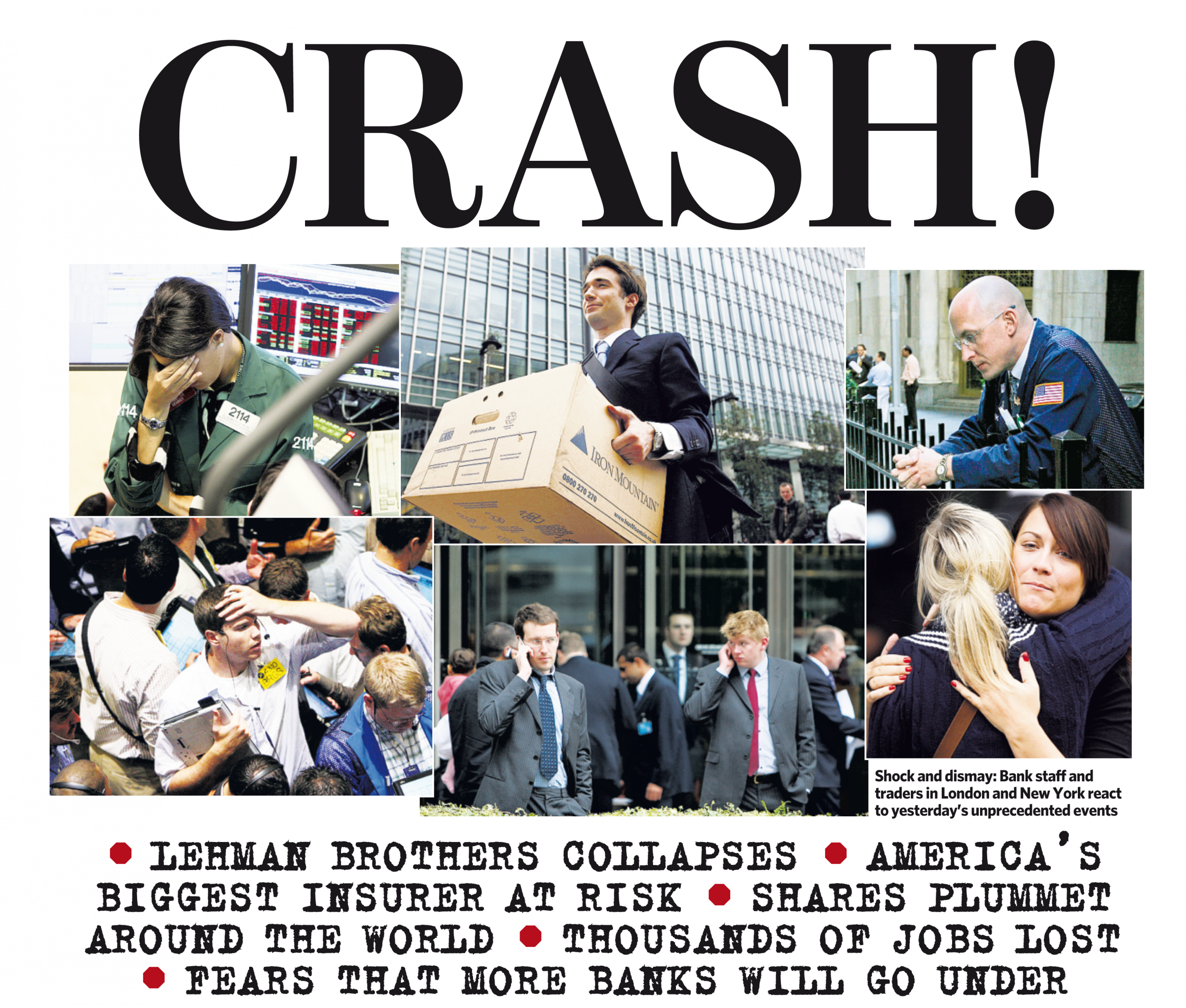Capturing the drama of the global financial crisis
The collapse of the banks sparked international panic, and, later, a world recession. This was just the beginning...

Your support helps us to tell the story
From reproductive rights to climate change to Big Tech, The Independent is on the ground when the story is developing. Whether it's investigating the financials of Elon Musk's pro-Trump PAC or producing our latest documentary, 'The A Word', which shines a light on the American women fighting for reproductive rights, we know how important it is to parse out the facts from the messaging.
At such a critical moment in US history, we need reporters on the ground. Your donation allows us to keep sending journalists to speak to both sides of the story.
The Independent is trusted by Americans across the entire political spectrum. And unlike many other quality news outlets, we choose not to lock Americans out of our reporting and analysis with paywalls. We believe quality journalism should be available to everyone, paid for by those who can afford it.
Your support makes all the difference.16 September 2008
In London and in Manhattan, the twin cities of global finance, thousands of investment bankers loaded their belongings into boxes and headed out to an uncertain future yesterday after the astonishing collapse of Lehman Brothers, one of the world’s most important financial firms, and a meltdown on global stock markets.
Lehman employs 4,500 people in London and 20,000 more around the world, and the human cost of its bankruptcy – filed in the small hours of yesterday morning after a frantic weekend of negotiations failed to save the company – was the first and easiest to measure. Many employees have most of their wealth tied up in the firm’s shares, which are now worthless.
But there are other costs from the events of a weekend that will change the shape of global finance for ever, and the reckoning has only just begun. The FTSE 100, the UK’s index of major shares, many of which are staples of people’s pension funds, collapsed by 4 per cent yesterday, and the value of some of the UK’s biggest banks was sliced by up to a third.
Merrill Lynch, one of the most famous names in stockbroking which employs 60,000 people worldwide, is also no longer an independent company after an emergency takeover by Bank of America that its bosses believed was the only way to save it. And last night, one of the biggest insurance companies, AIG – which sponsors Manchester United football club – was pleading for $40bn (£22bn) in US government help to stave of its collapse.
The implosion of some of the most powerful financial firms in the world is the culmination of over a year of turmoil in the credit markets, turmoil that has its roots in the collapse of the US housing market and whose ultimate consequences remain impossible to divine. Many economists fear that, without a resolution soon, the global economy could be sent into a deep recession. The dollar tumbled in value yesterday and the oil price also skidded below $100 a barrel, both signs that traders fear an economic slowdown.
The City of London bore the brunt of the storm yesterday as bankers braced for more job cuts, not just at the firms directly affected by the weekend meltdown but across the industry, which must now begin shrinking dramatically after years of excess.
There was near-panic trading in shares of HBOS, the British banking group which owns Halifax, the country’s largest mortgage lender, which had lost 30 per cent of its value at the worst point of the day. It ended down 18 per cent. Barclays and Royal Bank of Scotland also posted double-digit percentage falls.
The problems in the derivatives markets could be even larger. Lehman’s bankruptcy triggered a scramble by traders on both sides of the Atlantic to unwind an estimated $700bn of trading positions, something that has never been tried on such a scale. The growth of the derivatives market has been so fast and so vast that Wall Street has not had time to invent a central trading mechanism and the whole edifice has gone largely unregulated.
In co-ordinated moves, the Bank of England and the European Central Bank injected a combined £28bn of new lending into the financial markets to help ease any bottlenecks. The US Federal Reserve has also relaxed its rules for lending to the financial markets, and 10 Wall Street banks said on Sunday night that they were creating a $70bn fund to make temporary loans to institutions that find themselves in difficulty.
The havoc on financial markets became an issue on the presidential campaign trail as the Democrat candidate, Barack Obama, blamed eight years of lax regulatory oversight for “the most serious financial crisis since the Great Depression”. His Republican rival John McCain said these were “frightening times” and vowed “to clean up Wall Street”.
President George Bush called for calm, saying the economy was strong enough to withstand “adjustments” on Wall Street, and Congress began work on a $50bn economic stimulus package.
Hank Paulson, the US Treasury Secretary, blamed Wall Street for bringing the crisis on itself and called for a sweeping overhaul of financial regulations. “We’re working through a difficult period in our financial markets right now as we work off some of the past excesses, but the American people can remain confident in the soundness and resilience of our financial system,” he said.
Before joining the Bush administration in 2006, Mr Paulson was head of Goldman Sachs, the mightiest investment bank on Wall Street. Questions hung over the future of Goldman Sachs itself yesterday, and of the only other remaining investment bank, Morgan Stanley. Three of the Big Five have now collapsed or been absorbed into more stable high-street groups.
Join our commenting forum
Join thought-provoking conversations, follow other Independent readers and see their replies
Comments